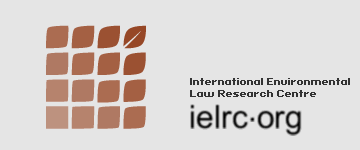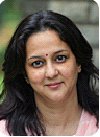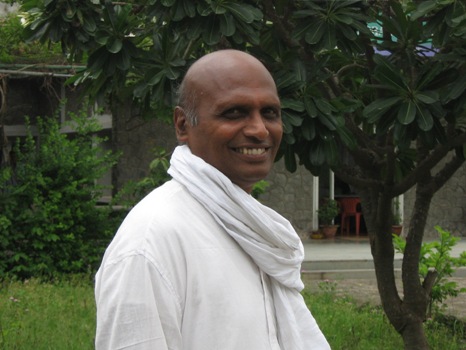Governance
Transfer of power to rural communities : Initiative by Sambhav Trust
Posted on 29 Jul, 2009 01:29 PMThis article is about an experiment taken up by Sambhaav Trust with communities in Barmer (district of Rajasthan), which tells us about the development of the rural area and how to bring about self sustainability to rural society. Readers may kindly write in with their feedback in the comments or to portal@arghyam.org. Comments & emails will be forwarded to Sambhaav Trust by the India Water Portal.
Introduction
The word rural is synonymous with backwardness in the eyes of the upper urban community. A general impression that has been created is that people living in rural areas are economically poor, uneducated, do not have any sense of business, are not hardworking and hence they are much below those who live in urban areas who are monetarily rich. This perception is a biased one. We have never asked ourselves - what are the indicators that make a man backward or advanced? We have measured everything in terms of monetary advancement. In our experience there are a number of indicators one can associate with development like social, political, value system etc. It is therefore important that we check our perception before we talk of rural development. We are not debating on the urban-rural divide. However, from our experience in the rural field we believe that if we are interested in national development and not just sectoral development, then it is essential to assess the potentiality of the rural sector to move forward. Our contention is that this potentiality has not been probed into. On the contrary, a policy to downgrade this sector continues year after year. We have to broaden our perception if we truly want a just state.
SAWAS: Changing water governance in India.
Posted on 27 Jul, 2009 02:41 PM
SAWAS (South Asian Water Studies) calls for papers on longer-term perspectives on water governance and management (reform) in India. The papers should not exceed 5000 words (including references and footnotes). We are inviting original, well argued and accessibly written analyses of water sector reform experiences, assessments of future developments, discussion of dilemmas and contradictions, accounts of policy processes and policy instruments, etc.
Papers are to be submitted to Dr Daphne Gondhalekhar at ZEF, Bonn (daphneg@mit.edu) not later than September 30, 2009. Papers will be peer reviewed. Accepted (and eventually revised) papers will be published in a forthcoming issue of SAWAS (South Asian Water Studies)
For more information on the broad thematic aimed at, please download the Information Click here
Sambodhi Communications : Training schedule
Posted on 27 Jul, 2009 02:37 PMImage and Content Courtesy: Excella Orbit 
Excella Orbit, a division of Sambodhi Research & Communications Pvt. Ltd. is conducting a bouquet of trainings during the month of July, August & September, 2009 and January-March, 2010
July 28-31, 2009 - Basic & Advanced Analysis using SPSS, Hyderabad August 10-13, 2009 - Basic & Advanced Analysis using SPSS, New Delhi August 25-28, 2009 - Design & Development of Management Information System, New Delhi
Internship Opp. at Arghyam
Posted on 24 Jul, 2009 10:31 AMArghyam’s Grants Team is inviting applications from dedicated and talented students for their internship programme. Positions are open for data analysis, water writing and documentation. Both these positions are for 2 months. Only Bangalore based candidates or candidates willing to relocate to Bangalore for the duration of this project need apply.
Notable new content: IELRC
Posted on 19 Jul, 2009 06:05 AM The International Environmental Law Research Centre (IELRC) (www.ielrc.org) is an independent, non-profit research organis
The International Environmental Law Research Centre (IELRC) (www.ielrc.org) is an independent, non-profit research organis
Tribute to Narendranath, an organic farmer who passed away in Hyderabad
Posted on 19 Jul, 2009 05:36 AMInternship positions at Arghyam
Posted on 18 Jul, 2009 07:38 AMArghyam's Grants Team is inviting applications from dedicated and talented students for their internship programme. Intern (Data and Analysis)
Rohini Nilekani: "A fine balance in Kutch"
Posted on 17 Jul, 2009 07:27 PMFrom Rohini Nilekani's "Uncommon Ground" column in Livemint
 As always, the monsoon may or may not come in time and in adequate quantity across the country. As always, again, people who live in the dry areas of the country, especially in the western desert districts of Rajasthan and Gujarat, with less than 250mm of average annual rainfall, will have to cope with scarcity, as they do year on year. Last week, I was in the Kutch region, on work, with soaring temperatures and no promise of rain despite an unusual cloud cover. We travelled a couple of hundred kilometres in the clay desert, despairing at the spread of Prosopis juliflora which—like so many other foreign species brought in by the forest department with all good intentions—has now overpowered large tracts of the countryscape, to the detriment of useful, hardy local species. We also marvelled at the raw beauty of the dry landscape, which yielded sudden delights such as a male nilgai in his prime and slender green bee-eaters diving gracefully in search of prey. Arid districts such as Kutch in Gujarat, and Barmer and Jaisalmer in Rajasthan mainly have livestock economies and it is not unusual to see thousands of animals—goats, cows, sheep, buffaloes and camels—moving amiably along in search of the next watering hole. It seems counter-intuitive that areas with such low rainfall should provide neighbouring states with meat and milk. IWMI (the International Water Management Institute) has done unique research to show how there is a massive export of virtual water from dry regions to wet through the sale of these products, leaving open some interesting questions on policy.
As always, the monsoon may or may not come in time and in adequate quantity across the country. As always, again, people who live in the dry areas of the country, especially in the western desert districts of Rajasthan and Gujarat, with less than 250mm of average annual rainfall, will have to cope with scarcity, as they do year on year. Last week, I was in the Kutch region, on work, with soaring temperatures and no promise of rain despite an unusual cloud cover. We travelled a couple of hundred kilometres in the clay desert, despairing at the spread of Prosopis juliflora which—like so many other foreign species brought in by the forest department with all good intentions—has now overpowered large tracts of the countryscape, to the detriment of useful, hardy local species. We also marvelled at the raw beauty of the dry landscape, which yielded sudden delights such as a male nilgai in his prime and slender green bee-eaters diving gracefully in search of prey. Arid districts such as Kutch in Gujarat, and Barmer and Jaisalmer in Rajasthan mainly have livestock economies and it is not unusual to see thousands of animals—goats, cows, sheep, buffaloes and camels—moving amiably along in search of the next watering hole. It seems counter-intuitive that areas with such low rainfall should provide neighbouring states with meat and milk. IWMI (the International Water Management Institute) has done unique research to show how there is a massive export of virtual water from dry regions to wet through the sale of these products, leaving open some interesting questions on policy.
The economics of climate change in Southeast Asia: a regional review
Posted on 13 Jul, 2009 09:53 AMClimate change will affect everyone but developing countries will be hit hardest, soonest and have the least capacity to respond. South East Asia is particularly vulnerable to the impacts of climate change with its extensive, heavily populated coastlines, large agricultural sectors and large sections of the population living under $2 or even $1 a day.
National Water Academy: Short-duration program for NGOs and media, 28 July 2009, Pune
Posted on 03 Jul, 2009 08:53 PM National Water Academy (Khadakwasla, Pune, India) will conduct a three day “Introductory Program” for NGOs and media persons active in water and environment sector, from 28 to 30 July 2009.
National Water Academy (Khadakwasla, Pune, India) will conduct a three day “Introductory Program” for NGOs and media persons active in water and environment sector, from 28 to 30 July 2009.






